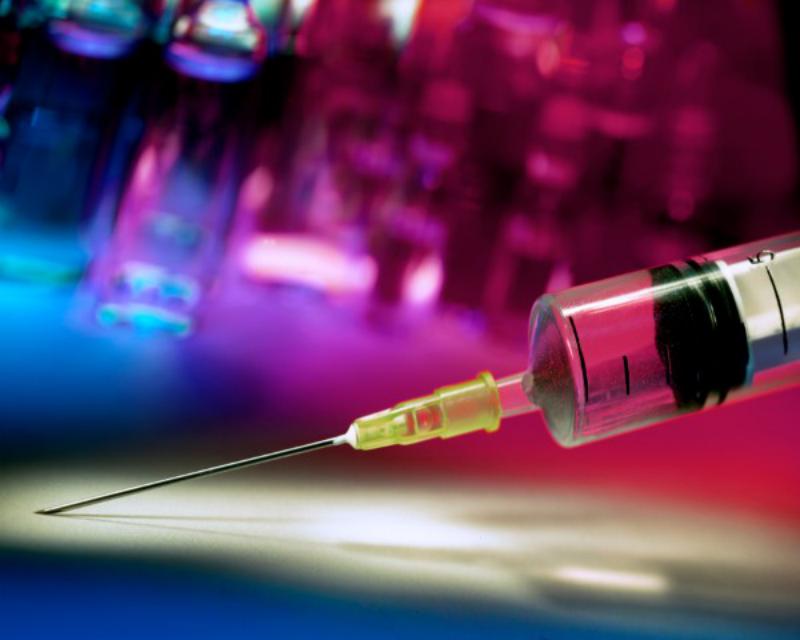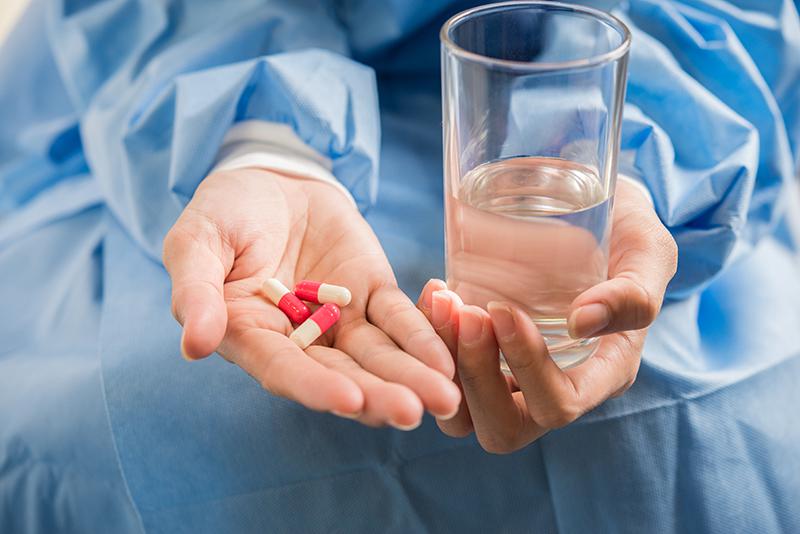Bio-degradable cards
Every card imaginable!
|
Bio-degradable cards Every card imaginable! Your Guide to Steroid Therapy
Steroid Therapy Explained: Understanding Basics and EffectsWhat is Steroid Therapy?Steroid therapy involves the medical use of steroid medications, specifically glucocorticoids or corticosteroids, which are synthetic versions of hormones produced by the adrenal glands. These glands are located on top of each kidney and are vital in regulating various bodily functions, including inflammation and immune response. In steroid therapy, these drugs are used to mimic or enhance the effects of the body's natural hormones to treat a variety of conditions, typically those involving inflammation or immune system dysfunction. Steroids used in this therapy should not be confused with anabolic steroids, which are used primarily to build muscle and enhance athletic performance. Medical steroids are crucial in managing diseases by modulating the immune system and suppressing inflammatory processes that can cause significant pain and damage if left unchecked. They are typically prescribed in the form of pills, inhalers, injections, or creams, depending on the condition being treated. What Treatments Are Steroids Used For?Steroids are employed in the treatment of a range of medical conditions that are characterized by inflammation and overactive immune responses. These conditions include, but are not limited to: Autoimmune disorders: Conditions like rheumatoid arthritis, lupus, and multiple sclerosis, where the body’s immune system attacks its own tissues, resulting in inflammation.Allergic reactions: Severe allergic reactions such as those to poison ivy, insect stings, or other allergens that cause swelling and discomfort.Respiratory diseases: Chronic and acute conditions like asthma and COPD (chronic obstructive pulmonary disease), where steroids help reduce airway inflammation and prevent bronchospasm.Skin conditions: Dermatological issues like eczema and psoriasis can be effectively managed with steroid creams and ointments to reduce skin inflammation and irritation. The application of steroids in these treatments helps to significantly reduce symptoms, enhance quality of life, and prevent the progression of disease in many cases. What Do Steroids Do to Your Body?When administered, steroids enter the bloodstream and broadly suppress the immune system's inflammatory pathways. They inhibit the production of molecules that are responsible for inflammation, such as prostaglandins and leukotrienes. By doing so, steroids can reduce symptoms such as swelling, pain, and redness, which are commonly associated with inflammatory conditions. However, because these drugs also suppress the immune system, they can make individuals more susceptible to infections. The effects of steroids on the body can vary widely depending on the dose, duration of use, and the specific condition being treated. They also influence various metabolic processes in the body, which can lead to side effects like increased blood sugar levels and altered fat metabolism. Understanding these effects is crucial for anyone undergoing steroid therapy to adequately manage the benefits against potential risks. What is the Difference Between Steroids and Anabolic Steroids?Steroids in the context of medical therapy typically refer to corticosteroids, which are used to treat inflammatory conditions and autoimmune diseases by suppressing inflammation and modulating the immune system. These include drugs such as prednisone, hydrocortisone, and dexamethasone. Anabolic steroids, on the other hand, are a different class of steroids that are related to the male hormone testosterone. They are primarily used to increase muscle mass and enhance physical performance. Anabolic steroids have both legitimate medical uses, such as in the treatment of certain hormonal imbalances or muscle-wasting diseases, and non-medical uses, particularly in the context of bodybuilding and sports. The primary difference lies in their mechanisms of action and their intended uses. While corticosteroids are essential for controlling inflammation and immune response, anabolic steroids are involved in muscle growth and physical performance enhancement. Misuse of anabolic steroids can lead to serious health issues, including cardiovascular problems, liver damage, and hormonal imbalances, which is why their use is strictly regulated and often stigmatized in sports. 
Understanding the Side Effects of SteroidsWhat are the side effects of steroids?Steroids can cause a range of side effects, which vary depending on the dosage, duration of treatment, and the individual's response. Some of the most common side effects include:
These side effects necessitate careful management and regular monitoring by healthcare professionals to mitigate risks and ensure the therapeutic benefits outweigh potential harms. What illnesses do steroids make worse?While steroids are used to treat a plethora of inflammatory and autoimmune conditions, they can exacerbate certain illnesses, particularly:
Patients with these conditions need tailored treatment plans to manage both their chronic conditions and the implications of steroid use. What are the long term effects of steroid use?Prolonged use of steroids can lead to several long-term health issues, including:
How do steroids reduce inflammation?Steroids work by entering cells and influencing the cell's machinery to produce proteins that inhibit inflammatory pathways. They block the production of inflammatory cytokines and mediators, thereby reducing tissue damage. This action helps in conditions where inflammation is part of the disease process, such as asthma, rheumatoid arthritis, and inflammatory bowel disease. 
Usage, Interactions, and DurationWhy do doctors not like to give steroids?Doctors often approach steroid prescriptions with caution due to the intricate balance between their powerful anti-inflammatory and immunosuppressive benefits and the broad spectrum of potential side effects. This careful consideration stems from several factors:
Therefore, doctors prioritize prescribing steroids when absolutely necessary, often as a last resort or for short-term management of acute, severe inflammatory conditions, always aiming for the lowest effective dose for the shortest possible duration. What drugs should not be taken with steroids?Concurrent use of steroids with certain other medications can lead to significant and potentially dangerous interactions, amplifying side effects or reducing drug efficacy. It is crucial for patients to provide a complete medication history to their healthcare providers to avoid these interactions. Key drugs to be cautious with include:
How long should you take steroids for?The duration of steroid therapy is highly individualized and determined by several factors, emphasizing the principle of using the lowest effective dose for the shortest possible time. This strategy aims to maximize therapeutic benefits while minimizing the risk of adverse effects.
The decision on duration is a collaborative one between the patient and their healthcare provider, weighing the ongoing benefits against the cumulative risks, and making adjustments as the patient's condition evolves. 
Common Steroids and Their UseWhat are the most common steroids?The term "steroids" in a medical context most commonly refers to corticosteroids, which are synthetic analogues of hormones produced by the adrenal glands. These powerful medications are widely prescribed due to their potent anti-inflammatory and immunosuppressive properties. The choice of steroid depends on the specific condition being treated, the required potency, and the desired duration of action. Here are some of the most frequently prescribed corticosteroids:
These common steroids, along with others like methylprednisolone (often given intravenously for acute situations) and triamcinolone (frequently used in injections for joint pain), allow healthcare providers to fine-tune treatment strategies to effectively manage inflammation and immune responses across a broad spectrum of medical conditions. Can you drink alcohol with steroids?Mixing alcohol with steroids is generally discouraged and should be approached with caution, as it can significantly increase the risk and severity of several side effects, particularly those affecting the gastrointestinal system and immune response.
Given these potential interactions, healthcare providers typically advise patients to limit or completely avoid alcohol while undergoing steroid therapy, especially during long-term treatment or if they have pre-existing gastrointestinal conditions, diabetes, or liver issues. It's always best to consult with your doctor regarding alcohol consumption while on any medication. How long do steroids take to work?The onset of action for steroids can vary considerably depending on several factors, including the specific steroid used, the route of administration, the condition being treated, and the individual's physiological response.
It's important to note that while some symptomatic relief might be quick, the underlying processes of inflammation and immune modulation that steroids target take time to fully adjust. Patients should always follow their doctor's prescribed dosage and duration, and not discontinue medication prematurely, even if they feel better, to avoid rebound flares or withdrawal symptoms (in the case of long 
Effects on Physical Appearance from SteroidsDo steroids make you gain weight?Yes, weight gain is a well-documented and common side effect associated with steroid therapy, particularly with systemic corticosteroids and prolonged use. This weight gain isn't due to a single mechanism but rather a combination of effects:
While weight gain can be a frustrating side effect, it's often reversible. When the steroid dosage is reduced or the treatment is discontinued, the metabolic and fluid balance typically returns to normal, and the deposited fat can decrease. Dietary management and regular physical activity can help mitigate some of these effects during treatment. Do steroids make your face puffy?Yes, steroids can indeed make your face appear puffy and round, a phenomenon commonly referred to as "moon face" or "moon facies." This is one of the more recognizable physical side effects of systemic corticosteroid use, especially with higher doses and longer durations of therapy. The reasons for "moon face" are primarily:
"Moon face" is a benign but often distressing cosmetic side effect. It is typically reversible. As the steroid dose is gradually reduced or therapy is completed, the facial puffiness and rounding usually diminish over time, and the facial features return to their pre-treatment appearance. It's an indicator of the systemic effects of the medication and not usually a sign of a severe problem on its own, though it often accompanies other steroid-related side effects. How long should you take steroids for?The duration of steroid therapy is highly variable and is meticulously determined by a healthcare professional based on several critical factors to ensure effectiveness while minimizing potential side effects. The overarching principle is to use the lowest effective dose for the shortest possible duration.
The exact duration is always a personalized decision, weighing the therapeutic benefits against the cumulative risks, and adjusted based on the patient's response and the evolving nature of their condition. Why Carrying a Steroid Therapy Medical ID Card is ImportantFor individuals undergoing steroid therapy, possessing a Medical ID Card can be a vital component of responsible health management. This card serves several critical functions, particularly in unforeseen circumstances. Immediate Information in EmergenciesSteroid therapy significantly impacts the body's natural response to stress, injury, or illness. In a medical emergency where you might be unable to communicate, a Medical ID Card quickly informs first responders and medical personnel about your steroid use. This immediate disclosure can be crucial, guiding their urgent decisions regarding diagnostic tests, medication administration, and overall treatment strategy, potentially preventing complications and ensuring appropriate care during critical moments. Facilitates Medical CommunicationWhen interacting with healthcare providers, especially in unfamiliar or emergency settings, a Medical ID Card provides essential medical context without delay. It concisely communicates your steroid status, which can help prevent misinterpretations and ensure that any new treatments or prescriptions consider your ongoing therapy. This can lead to more seamless and consistent care. Enhances Personal SafetyAwareness of steroid therapy is important for preventing adverse events. The card alerts medical professionals to considerations such as a potentially suppressed immune system or the need for specific management if you require surgery or other interventions. This proactive communication helps mitigate risks associated with drug interactions or inappropriate medical procedures that could arise without knowledge of your steroid use. Provides ReassuranceKnowing that critical medical information is readily available to anyone assisting you in an emergency can offer significant peace of mind. This reassurance extends to family and friends, ensuring that your health needs are recognized and respected, regardless of your location or ability to speak for yourself. Supports Proactive Health ManagementCarrying a Steroid Therapy Medical ID Card reflects a proactive approach to managing your health. It demonstrates an understanding of your treatment's implications and your commitment to ensuring that your medical conditions are always taken into account. It's a straightforward yet effective tool for maintaining personal safety and promoting optimal care. In essence, a Steroid Therapy Medical ID Card offers practical benefits by improving safety and communication in medical situations. It's a simple measure that can have a significant positive impact on how your medical needs are understood and addressed, especially during critical times. Find out more on our website.
© 2024 The Card Project Uk Ltd
VAT: 453 2087 06
|